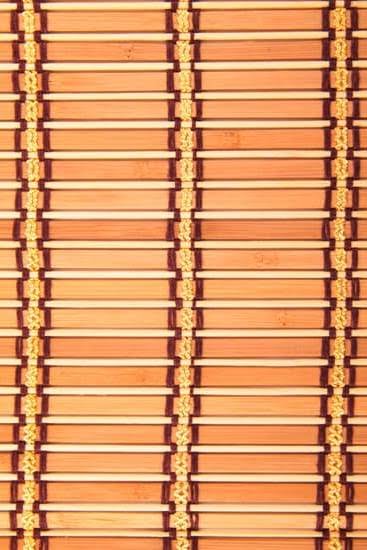Feng Shui, an ancient Chinese practice, is the art of arranging living spaces in a harmonious way to promote positive energy flow. One crucial aspect of this practice is determining the house feng shui direction, as it plays a significant role in influencing the flow of energy within your home. Understanding how your home’s orientation affects energy flow can help you optimize various aspects of your life, including wealth, health, relationships, and career.
Using a compass and understanding the Bagua Map are key tools in determining your house feng shui direction. By leveraging these tools effectively, you can enhance positive energy in each direction – North, South, East, and West. This can be achieved through simple tips and tricks that align with the principles of Feng Shui to optimize the energy flow within your home.
As you delve deeper into the world of Feng Shui, you will come to understand how house feng shui direction influences different areas of life. From addressing common Feng Shui issues resulting from incorrect house direction to adjusting your home’s layout and decor to align with optimal Feng Shui principles – there are countless ways to enhance positive energy within your living space.
Furthermore, gaining insights from expert advice and real-life case studies can offer invaluable guidance on aligning your home with optimal Feng Shui direction for enhanced well-being.
The Importance of House Feng Shui Direction
The foundation of feng shui is the belief that energy, or “qi,” flows through the environment and directly impacts our lives. One crucial factor that can affect the flow of qi is the orientation of your house. The house feng shui direction plays a significant role in determining how energy enters and circulates within your home. Understanding this concept is essential for creating a harmonious and balanced living space.
The Impact of House Orientation on Energy Flow
In feng shui, the direction in which your house faces is believed to have a direct influence on the quality of energy it receives. For example, a house facing south will receive more sunlight and warmth, while a north-facing house may be exposed to cooler temperatures. These differences in orientation can affect the flow of energy within the home, as well as the overall atmosphere and ambiance.
Balancing Yin and Yang Energies
According to feng shui principles, different directions are associated with specific elements and energies. By understanding these associations, you can work to balance the yin (passive) and yang (active) energies within your home. For instance, a north-facing house may be associated with water element energy, while a south-facing house may be linked to fire element energy. Balancing these elemental energies based on your house’s orientation can help create a harmonious and nurturing environment for its inhabitants.
It’s important to note that there are also individualized factors that can influence how energy flows into your home, such as nearby geographical features or structures. While understanding the general implications of your house’s feng shui direction is valuable, consulting with a feng shui expert can provide personalized insights into optimizing energy flow within your specific living space.
How to Determine Your House Feng Shui Direction
To determine your house feng shui direction, it is essential to use a compass and understand the Bagua map. These tools are crucial in helping you identify the optimal orientation of your home to ensure a smooth flow of positive energy throughout your living space.
Using a Compass
Begin by standing in front of your main door with a reliable compass in hand. Take note of the degree reading on the compass that indicates the direction in which your home is facing. This will give you a basic understanding of which direction your house is oriented towards, which is crucial for implementing feng shui principles effectively.
Understanding the Bagua Map
The Bagua map is an essential tool in feng shui that helps in determining the various energy directions within your home. By overlaying this map onto your floor plan, you can identify which areas of your home correspond to specific aspects of life such as wealth, health, relationships, and career. Understanding how these sections align with the cardinal directions will help you optimize the energy flow within your living space according to feng shui principles.
By using a compass and understanding the Bagua map, you can accurately determine your house feng shui direction and take steps to enhance positive energy flow throughout your home. This foundational knowledge will set the stage for implementing specific tips and tricks to optimize each direction for better overall well-being and harmony within your living environment.
Enhancing Positive Energy in Each Direction
When it comes to optimizing the energy flow in your home, paying attention to the house feng shui direction is crucial. Each direction – north, south, east and west – plays a significant role in the overall energy balance of your home. By understanding how to enhance positive energy in each direction, you can create a harmonious and balanced environment that supports your well-being.
Here are some tips and tricks for optimizing the feng shui energy in each direction:
- North: The north side of your home is associated with career and life path. To enhance positive energy in this direction, consider adding water elements such as a small fountain or a bowl of water. You can also incorporate the colors blue and black in your decor to promote a sense of calm and introspection.
- South: The south side corresponds to recognition, fame, and reputation. To optimize the feng shui energy in this direction, use bright lights and vibrant red decor elements. Adding plants or natural sunlight can also invigorate the space and support positive energy flow.
- East: The east is linked to health and family harmony. To enhance the feng shui energy in this area, consider incorporating wooden furniture and green plants. Soft lighting can also create a nurturing atmosphere that promotes well-being for you and your loved ones.
- West: The west represents creativity, children, and future endeavors. To optimize positive energy in this direction, consider adding metal decor elements or white accents. Artwork or inspirational quotes can also inspire creativity and support new opportunities.
By implementing these tips for each house feng shui direction, you can cultivate a balanced environment that supports your goals and overall well-being. Paying attention to these details will allow you to create an optimized living space that promotes harmony in all areas of your life.
The Influence of House Feng Shui Direction on Different Areas of Life
The practice of feng shui holds that the orientation of your house can significantly impact various aspects of your life, including wealth, health, relationships, and career. In feng shui philosophy, each direction is associated with specific elements and energies. For example, the north is linked to water energy and is connected to career prospects, while the east represents wood energy and influences family and health.
When it comes to wealth and prosperity, the south is considered a crucial direction in feng shui. This area corresponds to fire energy and is believed to enhance financial success when properly activated. To optimize this aspect of your life, it’s essential to ensure that this area of your house receives ample natural light and is free from clutter or blockages that could hinder the flow of positive energy.
In terms of relationships and overall well-being, the southwest portion of a home tends to hold particular significance in feng shui practice. This area symbolizes earth energy and is associated with love, marriage, and interpersonal connections. By focusing on enhancing the feng shui in this part of your house through decor, layout adjustments, and symbol placement, you can cultivate a more harmonious atmosphere that supports healthy relationships.
| Direction | Associated Element |
|---|---|
| North | Water |
| South | Fire |
| East | Wood |
| Southwest | Earth |
Common Feng Shui Issues With Incorrect House Direction
In the practice of feng shui, the direction your house faces plays a crucial role in determining the flow of energy, also known as “chi.” When the orientation of your home is not aligned with optimal feng shui direction, it can lead to various issues that affect different aspects of life.
One common issue that arises from an incorrect house feng shui direction is a lack of harmony and balance within the household. This can manifest as frequent arguments, misunderstandings, or a general feeling of unease among family members.
Another significant problem associated with improper house feng shui direction is the impact it can have on health. Inadequate energy flow due to an unfavorable orientation may lead to increased stress levels, fatigue, and even physical ailments. Furthermore, an improperly oriented home can negatively affect one’s career prospects and financial well-being. It may create obstacles to professional growth and cause financial instability for the residents.
To address these imbalances caused by incorrect house feng shui direction, certain adjustments and enhancements can be made. These include using appropriate colors, decor elements, and symbolic objects to activate positive chi in specific areas of the home based on its orientation. Additionally, incorporating elements such as mirrors or water features can help redirect and enhance the flow of energy according to feng shui principles.
| Common Issue | Impact |
|---|---|
| Lack of Harmony | Frequent arguments, misunderstandings, general unease |
| Health Problems | Increased stress levels, fatigue, physical ailments |
| Career & Financial Issues | Obstacles to professional growth, financial instability |
Adjusting Your Home’s Layout and Decor to Align With the Optimal Feng Shui Direction
When it comes to implementing feng shui in your home, understanding the optimal house feng shui direction is crucial for achieving harmonious energy flow. By aligning your home’s layout and decor with the principles of feng shui, you can create a space that supports well-being, abundance, and positive relationships.
To optimize the feng shui direction of your house, consider the following adjustments:
- Arrange furniture to face your favorable direction: Once you determine your home’s optimal feng shui direction based on its orientation and the Bagua map, arrange key pieces of furniture such as beds and desks to face this direction. This helps to invite positive energy into your living spaces.
- Decorate with elements that correspond to each direction: According to feng shui principles, each compass direction is associated with specific elements such as water, wood, fire, earth, and metal. Incorporate these elements into your decor by using colors, materials, or artwork that symbolize each element.
- Use mirrors strategically: Mirrors can be used to reflect light and create a sense of spaciousness in your home. Additionally, they can also help redirect energy flow when placed appropriately based on the house feng shui direction.
By making these adjustments in your home’s layout and decor to align with the optimal house feng shui direction, you can create a nurturing environment that supports your overall well-being. The practice of feng shui emphasizes the importance of living in harmony with one’s surroundings, and by optimizing the energy flow within your home, you can cultivate a sense of balance and positivity in various aspects of your life.
In addition to making physical adjustments within your home, it is essential to cultivate an awareness of how different compass directions influence various areas of life according to feng shui principles. Whether it’s wealth, health, relationships or career success – understanding how house feng shui direction impacts these aspects can guide you in creating an environment that nurtures and supports your goals and aspirations.
Expert Advice and Case Studies
In conclusion, the practice of Feng Shui has been an integral part of Chinese culture for centuries, and its principles continue to be relevant in today’s modern world. Understanding the basics of Feng Shui, including the importance of house Feng Shui direction, can greatly impact the energy flow within a home. By using a compass and the Bagua map, homeowners can determine the optimal direction for their house and make adjustments to enhance positive energy in each direction.
The influence of house Feng Shui direction extends beyond just energy flow; it can also affect different areas of life such as wealth, health, relationships, and career. By understanding and optimizing the orientation of one’s home, individuals may experience improvements in these aspects of their lives. However, it is important to address any common Feng Shui issues with incorrect house direction to avoid imbalances that could negatively impact well-being.
Finally, seeking expert advice and studying real-life case examples can provide valuable insight into the impact of house Feng Shui direction on residents’ well-being. Through adjusting a home’s layout and decor to align with optimal Feng Shui direction, individuals can create a harmonious living environment that promotes positive energy and overall wellness.
Whether it’s through simple adjustments or more extensive renovations, implementing Feng Shui principles for house direction can contribute to a more balanced and fulfilling lifestyle.
Frequently Asked Questions
What Is the Best Direction for a House to Face?
The best direction for a house to face depends on the climate and location. In general, a south-facing house receives more sunlight, while a north-facing one gets less direct sun.
What Is the Auspicious Direction for a House?
In Feng Shui, the auspicious direction for a house is often determined by the individual’s Kua number, which is based on their date of birth and gender. This can vary from person to person, so there is no one-size-fits-all answer.
Where Should Feng Shui Be Placed in a House?
In Feng Shui, important areas like the front door, bedroom, and kitchen should be carefully considered. For example, the front door is considered the mouth of qi energy in Feng Shui and should be well-maintained and clutter-free to allow good energy flow into the home.

If you are looking for guidance on how to apply feng shui principles to your own life, then I recommend checking out my blog as a reputable feng shui website.





